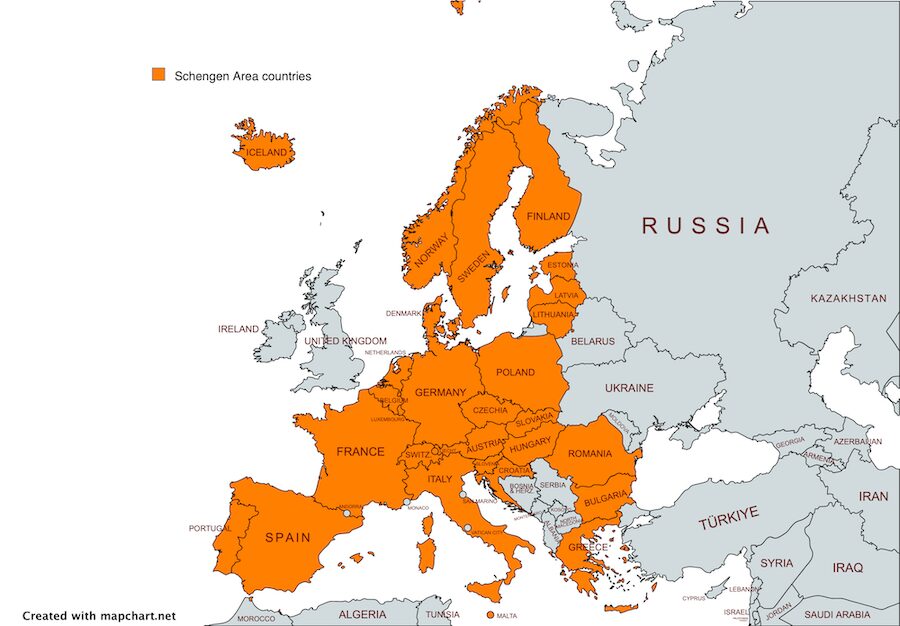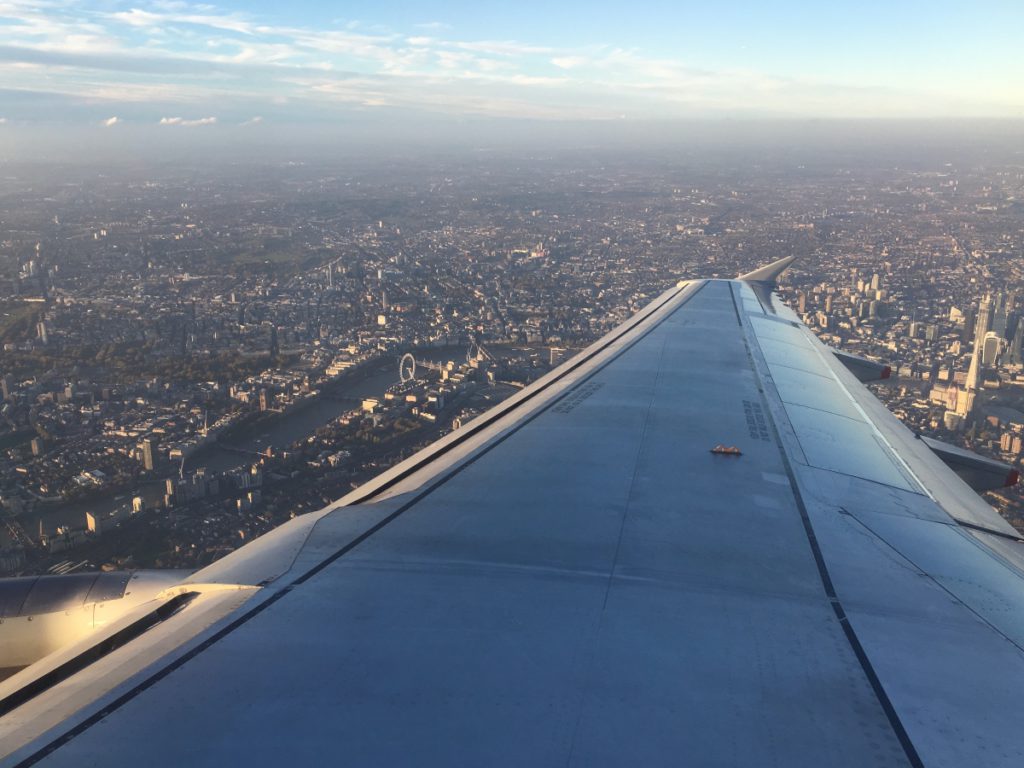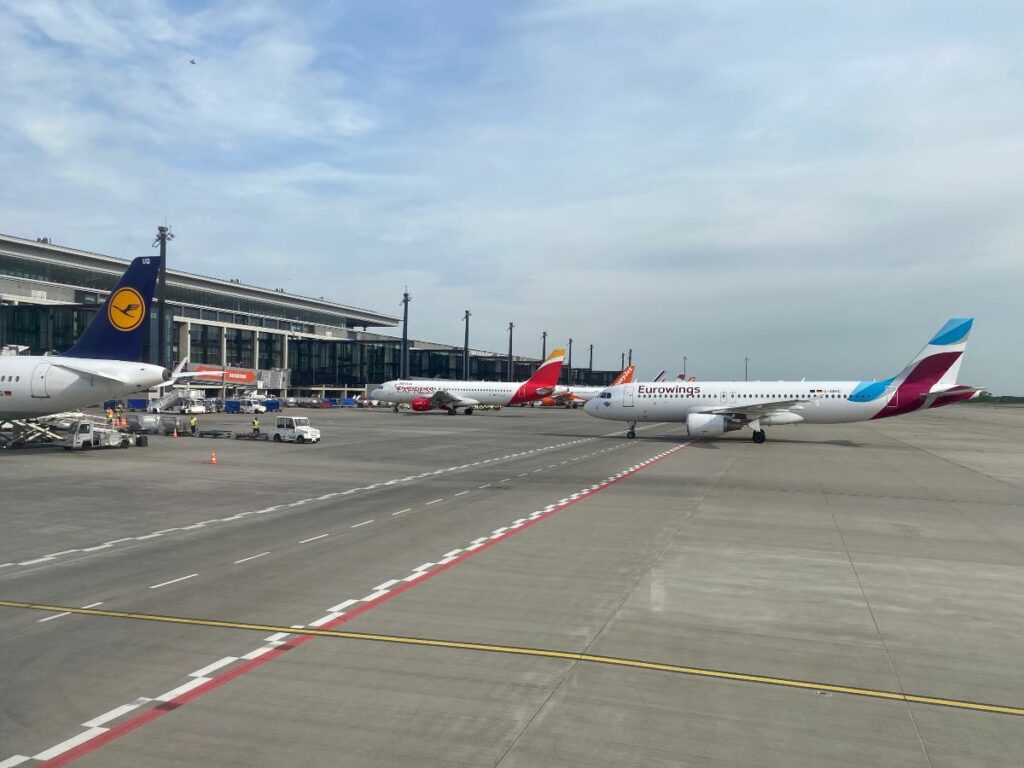As an Australian tourist, you can generally travel within Europe’s Schengen Area without a visa for up to 90 out of every 180 days. This is based on a “rolling calendar”, and takes into account your 180-day travel history on any given day.
The Schengen Area includes most of western Europe, Scandinavia, Iceland, the Baltics, Greece, Croatia, Romania and Bulgaria:

After a full 90 days within the Schengen Area, Australian citizens would normally need to leave and would not be able to return without a visa until at least another 90 days had passed. In the meantime, you could return to Australia or perhaps travel to other non-Schengen countries in Europe like the UK, Ireland, Serbia, Albania or North Macedonia.
Alternatively, if you have a visa for a country within the Schengen Area, including a working holiday visa, you would have the right to stay in that particular country as long as your visa remains valid. (The “90/180 day” rule for other Schengen countries still applies.)
But did you know that since 1952, Australia and Germany have had a bilateral agreement that allows Australian tourists to enter Germany for up to 90 days at a time, as often as they like?
The German-Australian Agreement on the Exemption of Visa Requirements
On 22 December 1952, Australia and Germany signed a bilateral “Agreement on the Exemption of Visa Requirements”. This is not widely known, but it is still in force today and the German border police should be aware of this agreement.
Under this bilateral agreement, Australian citizens can travel to Germany without a visa and stay for up to 90 days at a time. The main conditions are that:
-
Your passport must be valid for the entire duration of your stay
-
You cannot “engage in any type of gainful employment” (i.e. work in Germany)
Without a visa, you still cannot stay in Germany (or elsewhere in the Schengen Area) for more than 90 consecutive days. However, under this agreement, there is no limit to the number of times you may enter or re-enter Germany. So, if you wish to stay for another 90 days, you could simply depart Germany for any non-Schengen country and then return to Germany.
This could be as simple as flying from anywhere in Germany to London and back, since the UK is not part of the Schengen Area. It would even be allowed to fly back to Germany on the same day.

If you wish to use this agreement, you could advise the German border police on arrival that you are entering under the bilateral “German-Australian Agreement on the Exemption of Visa Requirements, dated 22.12.1952”.
You may need to be able to prove the amount of time you’ve spent in Germany, so keep records like airline boarding passes and hotel receipts.
This agreement is only between Australia and Germany
If you would like to use the German-Australian visa exemption agreement to holiday in Europe for more than three months, we would suggest visiting any other European countries you wish to visit first. That’s because other countries may not recognise this agreement between Australia and Germany.
Schengen countries other than Germany will probably count any time you’ve spent in Germany during the previous 180 days as part of your 90 allowable days within the Schengen Area, unless those countries also happen to have a similar bilateral agreement with Australia.
Once you’ve finished doing whatever you want to do in the rest of Europe, it would probably be a good idea to leave the Schengen Area. (Again, flying to London would be an easy option – but you could also travel to somewhere like Skopje or Tirana, for example.) Then, enter Germany on a direct flight from a non-Schengen country. That way, you’ll clear passport control at an airport in Germany. This is important!

During your stay in Germany under this bilateral agreement, you are not allowed to visit other European countries. This means you could not even cross the border into a neighbouring Schengen country such as Austria, Switzerland, Poland, Belgium or France. According to the rules, you must stay in Germany for the entire time.
But, again, you could travel directly to another country outside the Schengen Area, then return to Germany and your 90 days will reset.
Just make sure you leave Germany before your 90 days expires, and fly directly from a German airport to a non-Schengen country.
The German embassy in Australia currently advises to ensure you receive German entry and exit stamps in your passport, as proof of your travel history. However, from 10 November 2024, Schengen countries including Germany will stop stamping passports. As these stamps will be replaced by digital records of your entry and exit from the Schengen Area, we would assume you’ll be OK without stamps after this date – but we cannot yet say for sure.
The German Federal Foreign Office (Auswärtiges Amt) website has some useful information about this agreement for Australians in English.
Get a German visa to stay longer or work in Germany
Keep in mind that this agreement still only lets you travel to Germany for tourism purposes, and only for up to 90 days at a time. If you would like to stay longer and/or work in Germany, consider whether you might be eligible for a German visa or residency.
If you’re an Australian citizen aged 18-30 years old, a German working holiday visa could be one option. This allows you to live and work in Germany for up to a year.
While best efforts are made to keep this information updated, we do not guarantee its accuracy. If you spot an error, would like to suggest new information to be added or simply have a question, please let us know in the comments and we’ll endeavour to respond or update the article as quickly as possible!
Matt is the founder of Working Holidays for Aussies. Passionate about travel and always looking for great deals, he believes that a gap year is the perfect opportunity to immerse yourself in another culture and learn all the things they didn’t teach you in school!
Originally from Australia, Matt has travelled to over 100 countries, lived in 7 countries, and has extensive real-world experience with working holiday visas.













Hi Matt,
I am from Australia and have currently been in the Schengen for 91 days out of the last 180. I flew into Frankfurt on the 23 March, drove south and eventually exited the Schengen at Croatia to Montenegro (with a border stamp) on the 21 April. I re-entered the Schengen on the 30 April via a ferry in Brindisi Italy (with another stamp). I then drove across Italy, caught a ferry to Spain, then eventually across France back to Germany on 7 June.
I flew to Finland with my girlfriend (who lives in Germany) on 19 June and returned 26 June. So, although I have not re-entered Germany from a non-Schengen country, can I claim that I am here under the bilateral waiver from 26 June? or even claim it from 30 April (the date I re-entered the Schengen via Italy)?
I understand the advise is to enter directly via Germany from outside the Schengen, but its too late for that now. I am hoping having evidence such as flight records, credit card transactions and photos could suffice to show I was outside Germany and re-entered from Finland…
As a precaution, I’m thinking I’ll fly to the UK and back on the same day and then re-enter Germany claiming the bilateral stay… I am just concerned border officials may have issues if they view it as an overstay… do you know what might happen here? Could I fined be refused re-entry for what may be viewed as a 10 day overstay?
Thanks for this article and for any further info you could provide.
Hi Josh,
Unfortunately I can’t give you legal advice on this and cannot predict what may or may not happen at the border.
Technically, you need to leave the Schengen Area within the first 90 days. Then if you want to use the bilateral agreement, re-enter Germany directly from outside of the Schengen Area (e.g. the UK). I don’t think that entering Germany from another Schengen country would satisfy this requirement, because you won’t have an official German entry stamp as proof – but I’m not 100% sure. I’d suggest reading the official information from the German embassy very carefully, noting the subtle difference between words like “recommend” and “have to” – https://australien.diplo.de/au-en/service/visa/short-term-visa-2073662#content_2
Certainly, you wouldn’t be able to claim you’ve been using the bilateral agreement since 30 April since you entered through Italy. But the fact that you left the Schengen Area in April *might* help you. I can’t say for sure.
At this point, I would suggest that you should probably leave the Schengen area ASAP to avoid further problems. After that, if you did want to re-enter Germany under the bilateral agreement, make sure you do it directly from a non-Schengen country.
Dear Matt,
Firstly, thank you for this enormously helpful page – it’s such an excellent resource! Might you have an idea how this Bilateral Agreement would interact with the implementation of the EES in October 2025 (Entry/Exit System)? Do you imagine it would be possible that the days spent in Germany under the terms of the Bilateral Agreement might not count towards the 90-day rule? I’m imagining not, but thought I would ask anyway.
My thanks in advance and best wishes,
Kris
It’s not yet clear how this will work with EES, but there shouldn’t be any material changes to the actual terms of the bilateral agreement or how this works. So, the time spent in Germany under the bilateral agreement would still count towards the 90/180 day rule for the rest of Schengen.
Hi Matt,
I have a question about the German-Australia bilateral agreement to stay an extra 90 days. I held a French WHV from January 24 to January 25. I left before the WHV expired. I came back in the schengen area in March on the 90 day visa free as an Australian. Do you reckon I can still use the German bilateral agreement to stay an extra 90 days once my 90 days visa free days are done. I can exit and come back to Germany or it is not advisable given I had a French WHV as well prior. Even though it’s separate.
Hi Erica. As long as you completely leave the Schengen Area and then enter into Germany directly from outside of the Schengen Area (e.g. from the UK), I think you should be fine. After arriving in Germany (from outside Schengen), you get 90 “new” days which start from the date you enter Germany. Obviously you can only stay in Germany during that time and you would need to leave Germany directly to a non-Schengen country before the 90 days is up.
Hello! This is so helpful, thank you. I’ve been doing lots of research re the bilateral agreement between Germany & Aus.
I am hoping to spend 9 months from Oct 2025 in Germany so plan on using this bilateral agreement. I won’t be travelling around Europe but will stay in the one place. If I fly out of a German airport and to London every 85-90 days & return back to Germany under the bilateral agreement I shouldn’t have any issues? I will be sure to have proof of funds available, a print out of the agreement and also flights booked to leave the schengen area.
Thanks in advance for your insight.
Hi there, obviously the German border police would have the final say regarding admission into the country, but under the terms of the bilateral agreement you can stay an unlimited number of times in Germany, as an Australian citizen, for no more than 90 days each time. You would not be able to travel to other Schengen countries or work in Germany during that time. Having proof of funds and a ticket out of Germany directly to a non-Schengen country each time you enter would probably be helpful.
Hi Matt, hopefully a simple question.
After spending up to the 90 day in Germany under the bilateral agreement , what would be a acceptable time away before returning to Germany and re-enter under the agreement ? I would not try a day, would a week be more acceptable or is does not really matter ?
Hi Mike, this is what the German consulate in Sydney says about this:
“According to this agreement the duration of one stay in Germany must not exceed 90 days but the number of entries to Germany is not limited. In order to re-enter Germany for another 90 days visitors have to depart Germany for any other country outside the Schengen States (e.g. the UK) and can come back even the same day.”
See https://australien.diplo.de/au-en/service/visa/short-term-visa-2073662#content_2
Hi Matt!
I wanted to check I am currently in Austria for 90 days and then planning on coming to Germany to use the Bilateral agreement to spend 90 days in Germany too. In between Austria and Germany I will be going to London to leave the schengen area and enter into Germany. This is the correct way to use the agreement ?
Hi Sarah, yes this should be fine under the terms of the Australia-Germany agreement. The main thing is that you must enter Germany from outside of the Schengen Area (London is fine), stay in Germany, and then leave Germany directly to a non-Schengen country within 90 days after arriving.
Hi Matt,
Ok, so as an Australian, I can do this then:
90 days in Schengen area (not Germany)
1 day in UK (get a stamp when I am there)
90 days in Germany
91 days in non-Schengen places
90 days in Schengen again
Is there some sort of paperwork I need to fill out prior to going to Germany, or do I just show up with my passport and say “Hey, Australia has a bilateral agreement with you guys, so you have to let me in”?
And will I definitely get let back into Schengen 91 days after doing this?
Weblinks welcome!
Thanks 🙂
Hi there. What you’re proposing sounds possible.
One slight correction is that the UK no longer generally stamps Australian passports. But you will get an exit stamp when leaving Schengen and entering/exiting Germany if doing so before EES is implemented. If it’s after EES is implemented, your Schengen border movements will be recorded electronically in a central database, anyway.
Yes, you basically just tell the German border police that you’re entering under the bilateral agreement and that should be OK – most of them are aware of this law.
I cannot definitively tell you that you will be let back into Schengen (outside of Germany) 91 days after leaving Germany – that’s ultimately up to the border police. But my understanding is that you would be OK as long as you’d been at least 91 days outside of Schengen, including Germany.
Hey all AUSTRALIANS. I found this thread a year ago so thought I would drop my experience. I just spend the last 3 months in Europe. Mainly Berlin. Went to Heathrow airport (England) yesterday and flew back today to Berlin and just got my passport re stamped for another 3 months. Just on a holiday visa. Didn’t get questioned cause the guy knew of the agreement. Hope this helps
Thanks for sharing your experience, Matthew. Good to know that the border police are aware of this agreement and that it’s still going strong 🙂
Hi Matt, we have a bit of a special case but maybe you (or someone else) also know if this applies. My boyfriend is from Australia and came to visit me in Germany, while here he applied for a working holiday visa (which you can do as an australian citizen) but unfortunately got denied. Since the immigration office took forever to come to a decision they granted him a “fictional certificate” which allowed him to stay for another month. So over all my boyfriend has been in Germany for more than 90 days, legally though. Could there be problems if we decide to leave for the UK before the extra month expires since it’s been longer than 90 days or should that not matter since he’s been in Germany legally? Could he still come back for another 90 days after the UK visit?
Thank you in advance!
Hi Carina,
Obviously I can’t give you official advice on this. The German authorities will have the final say on whether your boyfriend is allowed into the country and I don’t know the details of the “fictional certificate” he was issued. But based on my reading of this, if he has been in the country legally up until this point and then leaves, that should be fine. He should also be entitled to return from the UK directly into Germany for a further 90 days, which resets whenever you exit/re-enter Germany (via a non-Schengen country). Viel Glück!
hi Matt does this agreement also apply to US citizens? because ive emailed and called the boarder police and theyve both told me yes its possible. you just have to exit germany after your 90 days for 24 hours and it will reset your 90 day visa free stay. However when looking up at the german websites it still only talks about the 90/180 rule… even consulted a lawyer and they said no.
Every info. out there is conflicting one another, do you happen to have any documents/emails confirming the 90 days reset?
Thank you!
The agreement outlined in this article is specifically between Australia and Germany. I am not aware of a similar agreement between Germany and the United States. I cannot definitively tell you one does not exist, but I could not find any information about such an agreement on the website of the German embassy in the USA.
Hi,
In fact many other Schengen countries have Bilateral agreements with Australia that function in a similar manner to the German agreement. Austria, The Netherlands and the Nordic countries. Romania also allows or did allow Australians to spend 90 days in Romania if they had already been 90 days in another Schengen land. In Mach 2024 Romania joined Schengen so i am not sure if this has affected that policy.
A few years back i was approaching my 90 days in a Schengen country and decided to move on to Germany using the 1952 Agreement with Australia. As i planned to travel into Germany by train i contacted the relevant German authority to check this was fine. They advised me to keep a coipy of my train ticket and a store receipt to prove i was in the land i was leaving.
Technically they were wrong as i later discovered when reading the fine print of the 1952 agreement. The fine print states that instead if travelling directly from another Schengen land directly into Germany you should leave Schengen then fly into Germany. in any case when it was time to leave Germany 90 days later it cause no problems. Sometimes even the qualified offical giving the advice is not fully aware of what is in the agreement
Interestingly Australians have more rights that British Citzens in Schengen as we have Bilaterals with several countries. After Brexit the British have none so 90 days for them means 90 days globaLly in the whole Schengen region. well done Boris.
An Australian also has the right while in Germany to legally apply to work there , however a British citizen wishing to work in Germany must now get a Visa to enter the country to look for work , all due to Brexit.
I recommend carrying a printed copy of the relevant Bilaterals as well as storing them on a Cloud account for instance Apple or Microsoft so in the event you meet a less than knowledgable official you can show the actual agreements.
Hi Matt, thanks for the great article! I was reading on the Germany Consulate in Australia website that you can stay for 90 days in the Schengen zone (eg. based in Germany but have permission to visit other Schengen states), leave (eg. to the UK) and then return to Germany (and Germany only) and stay for another 90 days.
“You can spend your first 90 days anywhere in the Schengen States and enter and leave the different states as often as you like.
On day 90 the latest you have to leave the Schengen States (you could go to the UK for example).
You have to make sure that you have the stamps from the border police in your passport to be able to proof that you have left the Schengen Area.
Afterwards you are allowed to go back to Germany for the 90 days, but only to Germany.”
Considering this, one should be able to travel freely in the first 90 days, depart the Schengen zone after that, and then remain in Germany only for another 90 days.
Keen to hear your thoughts: https://australien.diplo.de/au-en/service/visa/short-term-visa/2073662
Cheers!
You seem to have it worked out 🙂
Hey, I’m currently in Australia and planning a backpacking holiday around Europe, to my understanding I can travel across the schegen area for any 90 out of 180 days. if I exhausted those 90 days then left to a non schengen country to then re-enter Germany under the bilateral agreement, would I be able to wait out the remaining 90 days in Germany, then allowing me to travel freely across the schengen area again? also, because of the lack of border control between schengen countries what would hypothetically stop me from travelling to other countries whilst visiting Germany under the bilateral agreement?
Thanks
No, you wouldn’t be able to travel in Schengen again after waiting out the 90 days in Germany because other Schengen countries don’t necessarily recognise this bilateral agreement which is just between Australia and Germany.
In theory there’s nothing stopping you travelling to other countries while in Germany if you don’t get checked at the border. However, there is a possibility that you could get checked at any time when re-entering Germany – this does happen – and if caught, you could get into trouble. I would not risk it.
Thanks Matt, much appreciated.
We did a lot more searching for more information and I think we worked out what we could do. Provided we don’t over stay the 90 day period in any Schengen country within our 180 day period we’re confident we can stay out of trouble. Hahaha.
All the very best and thanks again
Cheers Andy
Hi Andy,
I’d strongly encourage you to have another read of the Schengen travel rules, as I think you may have been misinformed and I don’t want you to get into trouble. As an Australian tourist, you are allowed to stay within the entire Schengen Area for up to 90 days out of every 180 days. This is a combined 90 days in *all* Schengen countries.
You can find info on this here: https://www.smartraveller.gov.au/before-you-go/the-basics/schengen
Hi Matt, this is great news. Thanks so much for the advice.
Can you confirm what I am doing is correct and ok to use the 1953 bilateral agreement.
We plan to spend 6 months in Eastern Europe and Greece. Flying in to Munich on the 16th May and flying out of Munich on the 15th November. That’s a total of 183 days. Which is over the Schengen visa period. What I’m hoping we can do is, on arrival in May, leave Munich after a few days, travel around East Europe and Greece then head back to Munich just before the 180 days has elapsed and then use the 1953 bilateral agreement to enter the county again, but then fly home to Australia within the next five days.
Am I dreaming or is that doable? Would we need to fly back to Munich or would land crossing be acceptable also?
Thanks so much in advance for your reply.
We are two 60 year olds that are retired. Not sure if that makes a difference.
Thanks again.
Regards,
Andy.
Hi Andy,
No, unfortunately this would not be allowed because this bilateral agreement between Australia and Germany is only for stays of up to 90 days, and only for stays entirely within Germany (and no other Schengen countries).
What you could do though, for example, is spend some time outside of the Schengen Area in Eastern Europe (i.e. in non-Schengen countries such as Albania, North Macedonia, Serbia, etc.), then spend up to 90 days in Schengen countries, then leave the Schengen Area (e.g. to the UK). You could then fly directly from a non-Schengen country to an airport in Germany, stay in Germany (only) for up to 90 more days, and then leave from Germany directly to a non-Schengen country.
Please have another read of the article and the German government’s website which explains the rule in more detail.
Well, I think all of this, it just does not fair for german at all. Australian can stay for 90 days without visa but german have to apply for ETA and pay for it. I do not understand about their agreement and do not know why?? And that was my misunderstanding and thought I as german do not need visa for Australia then what happened to me was I just missed the flight because of not had enough time to apply ETA at the airport so I had to pay more than 1000€ to buy the new ticket for the next day, how stupid was that.
That was my lesson to thought that german passport can use to many country without visa, that was so wrong!!!!!
I believe Australia requires citizens of most other countries (not just Germans) to apply for an ETA before travelling there. This is different to needing a visa.
The European Union will soon introduce a requirement for citizens of most other countries to get an ETA to enter the Schengen Area and this will also apply to Australians entering Germany under this agreement which dates back to 1952.
This sounds great. Thanks for the info!
I am currently on a Working Holiday Visa (WHV)… I want to leave just before it ends, spend a month in Australia, and then come back to Germany. I spoke with someone at ‘die Ausländerbehörde’ they told me after my WHV ends I am not allowed to return to Germany for 90 days. I didn’t know about this…
So thought maybe I could still re-enter but it must be under the Aus/German Bilateral Agreement instead of a Schengen Visa.
So I asked him if he knew about the ‘Aus/German Bilateral Agreement on the Exemption of Visa Requirements’ he kept confusing it with the Schengen Visa… To his understanding the Bilateral Agreement isn’t separate to the Schengen Visa…
So he told me it isn’t possible…
But maybe it is possible, I don’t think he understands all the details…
What do you think? Has anyone been in this situation with a Working Holiday Visa? Would really love to know!!! Thanks 🙂
It sounds to me like the person you spoke to at the Ausländerbehörde simply isn’t aware of this obscure bilateral agreement between Germany and Australia from 1952. Which honestly isn’t all that surprising. 😉
If you want to double-check, maybe try contacting the German Consulate-General in Australia.
Legend mate, thanks for the quick reply.
I’ll give that a try and report back here 🙂
I have spoken with the Generalkonsulat der Bundesrepublik Deutschland Sydney, they told me in their opinion I am allowed to re-enter Germany, whenever I like, as long as I leave the Schengen Area before my WHV ends. But they cannot give me official confirmation.
So I took this email and other evidence to the Ausländerbehörder Freiburg to get confirmation. Despite all my attempts to explain clearly and differentiate the case of Australian passport holders to other country passport holders – they kept looking right past it all and kept saying it isn’t allowed. They are very busy in there and I get the impression that there is a misunderstanding.
This was my 2nd attempt. I don’t know what to do from here. I am waiting on them to reply to my email, I really pushed for them to actually look into my situation but they just don’t seem to have the time to consider my case. Can I visit another Ausländerbehörde or something?..
I agree that the office in Freiburg is probably mistaken, but I’m not sure why you need to get “confirmation” from them specifically. They probably have never heard of this rule, but the decision to admit you into the country is ultimately up to the border police when you re-enter Germany. They should be familiar with this rule, which is stated on the German government’s website.
The general consulate in Sydney would be more familiar with the current rules than a random Ausländerbehörde office, in my opinion.
So what I ended up doing was emailing the Bundespolizei, I explained my situation, they got back to me in only a few day and explained that as long as I haven’t used my 90 days outside of Germany I can re-enter… This was really helpful.
So I brought the email with me to the border when I re-entered Germany. They didn’t even ask for anything. They just looked at my passport, saw that I was on a WHV that finished only 5 weeks ago and didn’t care, they just asked why am I coming to Germany. My answer was “Tourist”. And then he asked, “and you won’t be working this time, right?” My answer “I’m only here as a Tourist, so I won’t be working”… Then he stamped my passport and I was through. (Oh they also asked if I had savings, and I said yes, they didn’t check.)
Search terms: From Working Holiday Visa to Tourist Visa, Re-entery, Re-entering
and thanks for you help Matt Graham 🙂
Glad to hear, thanks for taking the time to share your experience.
Hi Matt,
Great article!
Being an Aussie, Let’s say if I use all my 90 days in Germany (I know I could visit other Schengen countries) on Schengen visa and on 90th day I exit Schengen area. Can I re-enter Germany again for the next 90 days under this bilateral agreement? This way I would get to spend 6 months in Germany. I’m just looking to spend more time around Germany.
Also, you mentioned that we can’t enter any other Schengen countries under this agreement, which is fine. But what would happen if I want to leave Germany anytime before I finish my 90 days under this agreement, can I re-enter again?
Thanks!
Thought I would send this to you also. Hope it helps. In theory an Australian can spend 365 days a year in Germany…. (Indefinitely)….if you did not need to work and that you left for a non Shangan country four times a year.)Spending no more than 90 days on each stay.
Th “ lBilateral Visa Waver Agreement “ 1953 between Australia and Germany is obviously a law agreed well before the Shangan agreement . Don’t get the two confused. So many people do. The 1953 law still exists. And it covers a maximum stay of 90 days…I make sure I stay a few days short of 90 days..89..87 etc depending on my transport out of Germany. You must NOT travel to a Shangan country. You can then return to make another request for another 90 stay. ( even on the same day ..or a month later.. I holiday in other places for a while so I have never done this in one day). I have now done this three times and have had no problem ( only the immigration officer at the border is unclear of what I request…they do ring someone and my passport is then stamped with an entry stamp). They can ask you to prove your financial situation…you cannot work….or manybe proof of health insurance but they have never done this to date. This is the long and short of it. You need to pay particular attention to what I have written.
One more thing you cannot visit any other Shangan country once you have entered Germany on this 1953 agreement ….as I said it has nothing to do with the Shangan countries ..it’s the agreement between Australia and Germany. You could leave Germany to a non Shangan country and return to another Shangan country to benifit from the 90 day in 180 day rule
Thanks, Brian! This is SO helpful. Out of curiosity, in what timeframe did you complete these three successful returns to Germany? And what breaks did you take between them?
Thanks again,
B
Bridget….For the bilateral agreement- all three in the last 12 months or so…Egypt-6 weeks…….Romania~ 4 days…….Turkey-5 days. …all non Shangan countries.
I was alerted to this agreement by an immigration officer when I thought I could only stay 90 days in 180 using the Shangan visa. Let’s hope they don.t change this . Hope this helps.
Hi Matt, thanks for a great article. Love your work here and on Aust FF. I recently spent nearly 90 days in the Schengen Zone (I didn’t enter Germany) and flew to Albania before my time was up, with an exit stamp to prove it. I’ve booked to fly from Belgrade to Munich and intend to make use of this exemption. Do you have any recent reports of people successfully entering under the agreement and any advice if border police don’t know about it?
As far as I know, this is still working fine. Most of the German border police at the airport would be aware of the rule, but if you’re concerned, you could always take a printout of the advice on the German embassy’s website.
Just let them know when you arrive that you’re entering Germany under this bilateral agreement.
Hi, do you know if this agreement is also valid for people holding the New Zealand passport?
The particular bilateral agreement referenced in this article is specifically between Australia and Germany. However, Germany and New Zealand do have their own bilateral agreement that you can read about here: https://wellington.diplo.de/nz-en/service/-/1677534
So; What I understand of my reading of this bilateral agreement between Germany and Australia is 1. An Australian can stay 90 in Germany on a Shangan visa 2. Then travel to a non Shangan country for a day 3. Then return to Germany for another 90 days under the bilateral agreement.
What I have not read is how many times can an Australian use the 90 day bilateral agreement? Is it as simple as leaving for a day ; stay for 90 days ; leave again for a day; return for another 90 days…etc etc? Appreciate your reply.
Hi Brian. Firstly, you would not be staying in Germany for 90 days on a “Schengen visa” – this is a specific type of visa which is not related to the bilateral treaty between Australia and Germany. You do not need any visa as an Australian to stay in Germany for up to 90 days at a time.
There is no limit to the number of times you can stay in Germany for up to 90 days, leave directly to a non-Schengen country, then return to Germany. The only thing is that you can’t stay in Germany for more than 90 days at a time under this arrangement, and this doesn’t work if you also want to travel to any other Schengen countries.
Many thanks for taking the time to answer. Yesterday I got to the bottom of this. Firstly everyone on this topic should forget the connection to the Shangan visa ,signed by Australia if my memory is correct in the 1970’s. The bilateral agreement was established/signed in 1953. The two have nothing to do with each other. With the bilateral agreement so lang as an Australian leaves Germany to a non EU country ( maybe also non- shangan country) and returns to Germany then this gives another 90 days and can be repeated indefinitely. No work permission though. This is not widely known and as taken me a long time to find out. For Germans its 365 days in Australia. Brian
Hey there – do you have any documents or ‘success stories’ using the repeat entry under the bilateral agreement? I’m seeing very mixed interpretations of what ‘no limit to number of entries’ means – with some suggesting that after exhausting the visa-free Schengen period, the Bilateral 90 days can only be used once (but you’re allowed to leave Germany unlimited times to non Schengen countries if needed).
Any clarification would be hugely appreciated.
B
Th “ lBilateral Visa Waver Agreement “ 1953 between Australia and Germany is obviously a law agreed well before the Shangan agreement . Don’t get the two confused. So many people do. The 1953 law still exists. And it covers a maximum stay of 90 days…I make sure I stay a few days short of 90 days..89..87 etc depending on my transport out of Germany. You must NOT travel to a Shangan country. You can then return to make another request for another 90 stay. ( even on the same day ..or a month later.. I holiday in other places for a while so I have never done this in one day). I have now done this three times and have had no problem ( only the immigration officer at the border is unclear of what I request…they do ring someone and my passport is then stamped with an entry stamp). They can ask you to prove your financial situation…you cannot work….or manybe proof of health insurance but they have never done this to date. This is the long and short of it. You need to pay particular attention to what I have written.
One more thing you cannot visit any other Shangan country once you have entered Germany on this 1953 agreement ….as I said it has nothing to do with the Shangan countries ..it’s the agreement between Australia and Germany. You could leave Germany to a non Shangan country and return to another Shangan country to benifit from the 90 day in 180 day rule.